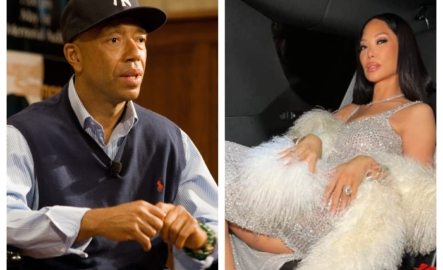Attempts at promoting a positive and balanced image of Africa have been thwarted by the overriding projection of distorted perceptions and propaganda that receive extensive support by those who claim to know Africa better than the natives. Consequently, Africa seems to be constantly in the news for the wrong reasons, no thanks to the array of Western media outfits that have made a profession of mostly telling and showing the seamy side of the continent perpetually to the world.
Like a ghost, the spate of negative and unbalanced media reports about Africa may continue to haunt the continent until Africans rise up fully to the challenge of telling their own stories to the global community.
Prof. Pius Adesanmi, director of the Institute of African Studies at Carleton University in Canada, brought this issue to the fore once again, in a keynote address he delivered at the 2016 Black History Month celebration of the African and Caribbean Students Union of St. Paul’s University, Ottawa.
Prof. Adesanmi said it is imperative for black people and Africans all over the world to own and tell their stories. He acknowledged that the voices of black storytellers are either silenced, improperly narrated or narrated by others more powerful than them and for ends that have little to do with them, stating that this sentiment has been around since the beginning of modern black imagination and intellectual thought. He added that many of the African and black radical ideologies of the 20th century were in a very basic sense, efforts to attain what the iconic literary giant Chinua Achebe once called a “balance of stories.”
Not all of us understand that our realities, what shapes and informs our struggles here in the Western world, in the Caribbean, and on the mother continent, Africa, is a function of stories and our ability to open up spaces of agency with stories. ~ Prof. Pius Adesanmi
The Nigerian-born professor is himself a prolific writer and commentator on African affairs who won the inaugural Penguin Prize for African Writing in 2010. During his lecture, Prof. Adesanmi emphasized the need for Africans to consistently and collectively work towards debunking the stereotypes and misrepresentation of their God-given continent, adding that no African or black person needs to be introduced to the concrete consequences of the collective inability of the black race to own and tell their own stories.
While placing responsibility for solutions in the hands of fellow African, Prof. Adesanmi was careful to also identify the diabolical role being played by a crop of Western narrators of Africa whom he sarcastically described as “the Hilton Hotel Africanists.”
Prof. Adesanmi said such a phony group consists of the journalist, writer, scholar, documentary filmmaker, adventurist, charity or development worker, expert or other expatriate who arrives in any capital city on the African continent, checks into the Hilton in town and gets to work.
“From his base in the Hilton hotel, this Africanist organizes expeditions into the Africa he has come to look for, hiring local agents to take him to locations of poverty and despair, completely ignoring the modernity to which he returns in the capital every evening.
He added that although when such an Africanist wakes up in the morning and opens his Hilton hotel window, the view of Africa which greets him is malls and skyscrapers and fast-moving luxury cars on glossy roads, telling stories of hypermodernity. Yet when he sends his dispatches about Africa back to Europe or America, no traces of this Africa is present in the report.
“All that is left is Ebola, AIDS, Boko Haram, wars and conflict, hunger and malnutrition. All that is left are malnourished and naked children with eczema-ridden skin, mucus-filled noses studying under a tree using wooden slates donated by UNICEF.
“It takes exceptional willpower and effort to close your mind and consciousness to all the postmodern gloss you see around you in the neighborhood of your Hilton hotel in Abuja or Nairobi or Johannesburg just because you are fixated on making poverty porn for consumption by Western audiences.”
Prof. Adesanmi explained that the future belongs to those who understand that efforts to reduce you to a story must be matched or overwhelmed by your own efforts to shine as a diversity of stories. He used the story of “China in Africa” as a classic example. According to him, this has been the dominant story out of Africa in nearly a decade:
“What did China do? Well, somebody in Beijing apparently decided that they were not going to let the West tell their story in Africa. They decided that they would not let the idea of China in Africa be shaped exclusively by CNN, the BBC, France 24, The New York Times and Washington Post.
“They invested heavily in CCTV Africa, China’s answer to the West’s global cable television machine. CCTV Africa is heavily subsidized by China. It is as popular as Al Jazeera on the continent. Yet the sole ideological function of that television is to enable China tell her own story in Africa,” he stressed.
“The challenge, therefore, is not in always screaming that we are victims of misrepresentation, of stereotypes, of single stories. The point is: do you understand the fact that misrepresentations and stereotypes are products of effort and energy?
“Does your effort to tell your own story match the effort that is put into misrepresenting and stereotyping you? It takes effort and considerable organization and diligence to tell lies about you or distort your story. Once your story is distorted, your world is equally distorted. Does Africa understand that it also takes effort and organization and dedication to tell your own truths?”










